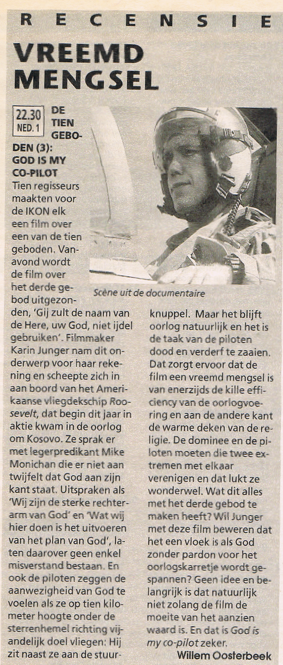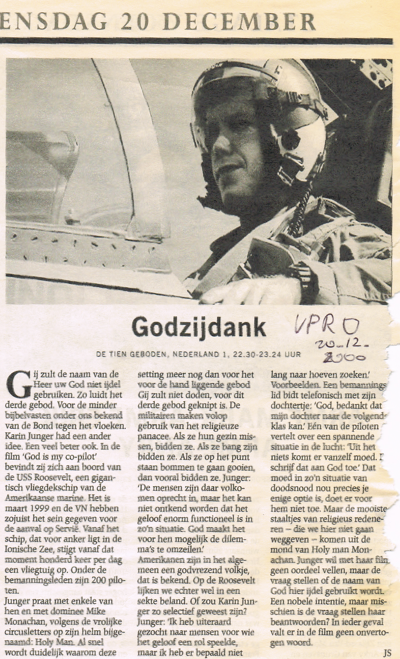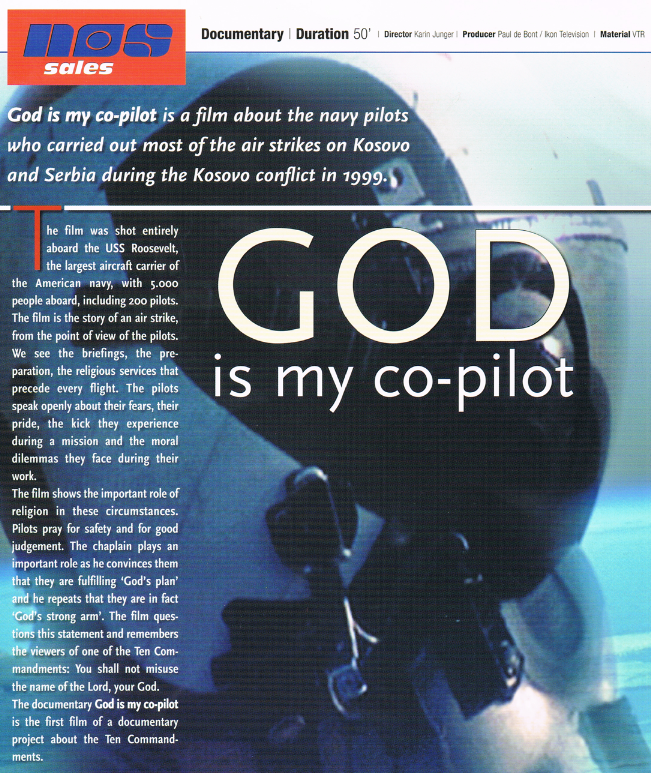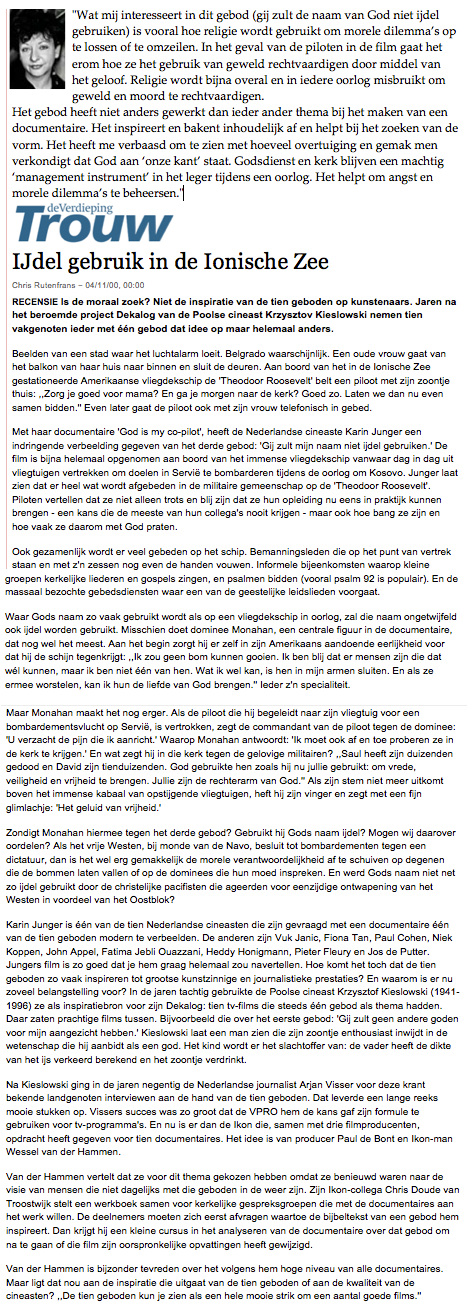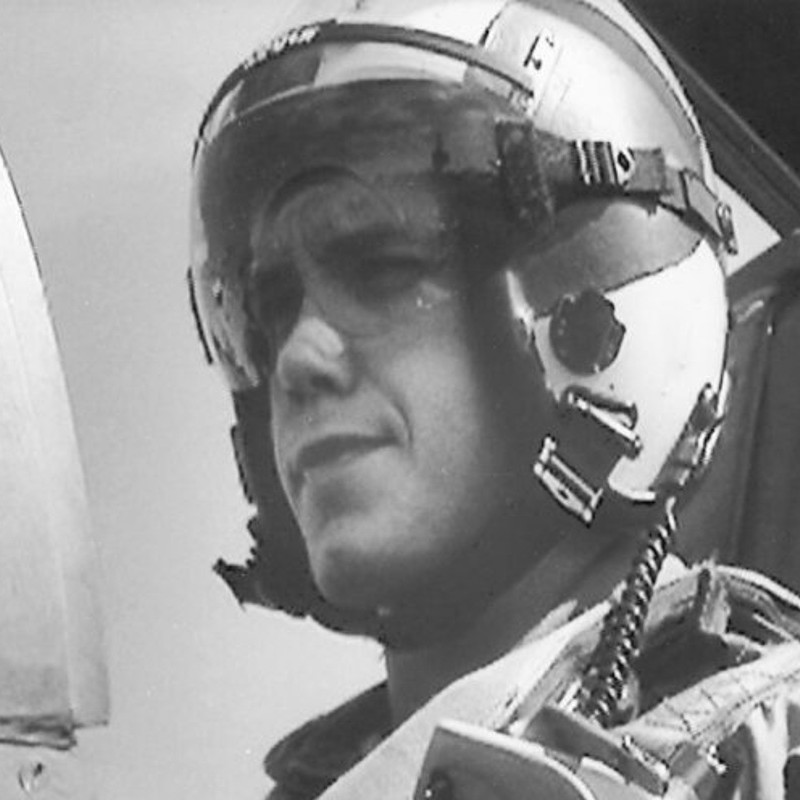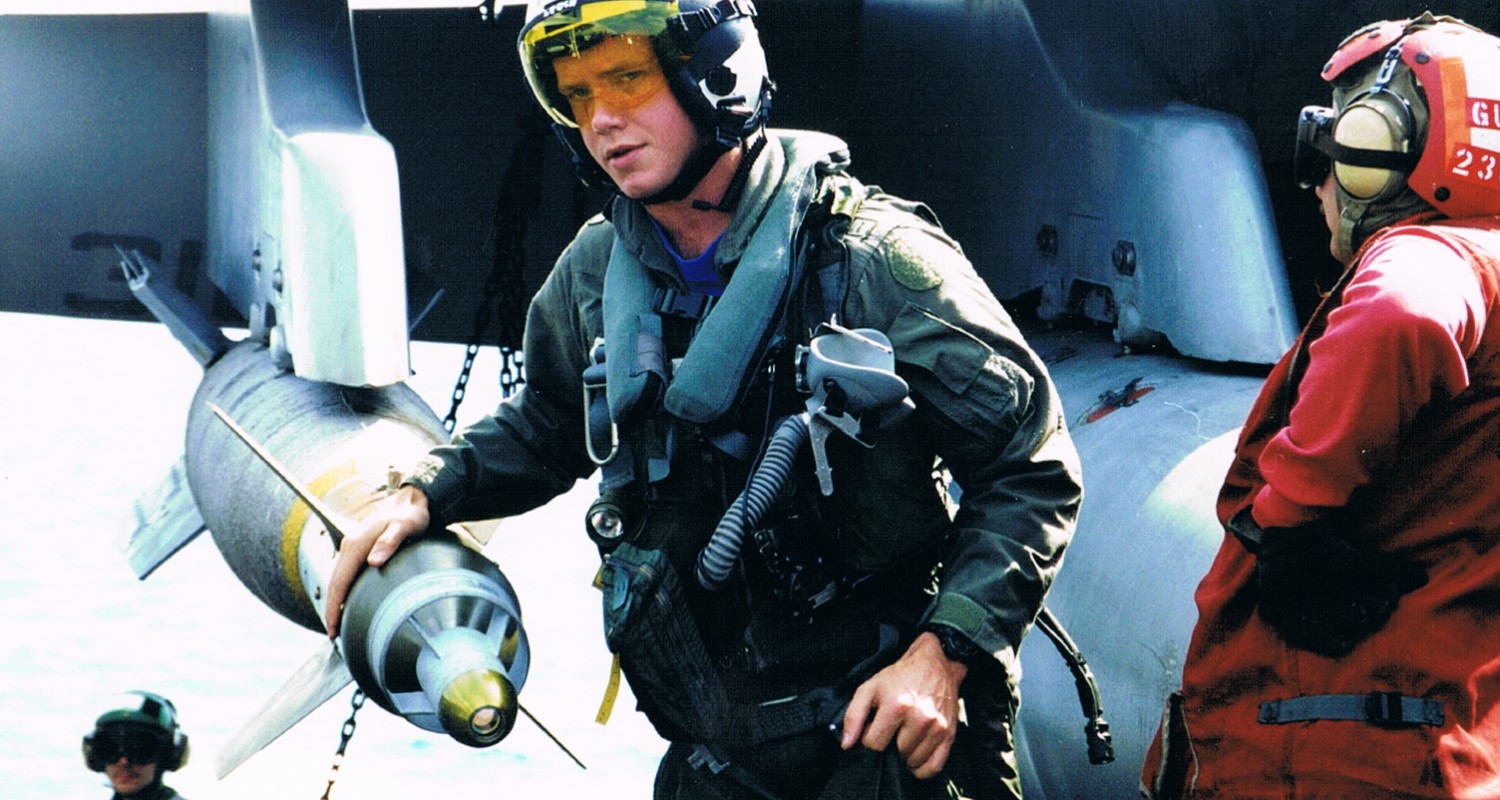
God is my co-pilot
Summary
Documentary based on the third commandment – Thou shalt not misuse the name of God – in which the filmmaker examines the connection between religion and war on board an aircraft carrier.
Part of the documentary series 10 Commandments. For the documentary God is my Co-Pilot, director Karin Junger was inspired by the Third Commandment: Thou shalt not misuse the name of God. In the film she investigates the connection between religion and war aboard the USS Roosevelt. On the largest aircraft carrier in the US Navy – the ship has 5,000 crew members including about 200 pilots – not a day goes by without prayer, singing and church services. During the war in Kosovo, Junger followed a number of pilots and their spiritual leader between air raids. She critically questions their faith: What do the pilots think of their role in this war and how do they justify that role with their religious views?
Broadcasted in Austria, Canada, Finland, and Israel.
Reviews
Karin Junger’s remarkably candid portrait of pilots engaged in the bombing of Serbia and Kosovo in 1999 is part of a series of documentaries from Holland based on the ten commandments.
Focus on commandment
This particular documentary focuses on the commandment “Thou shalt not take the name of the Lord thy God in vain”, showing pilots praying to God before they go out and break another commandment, “Thou Shalt Not Kill”.
Impressive
The level of access that Junger has achieved is impressive. Through interviews, in particular with the ship’s chaplain, a man of fierce conviction, she raises important questions about the use of religious rhetoric in war.
The Holy Man
The “Holy Man”, as he has written on his helmet, is quite clear about his role aboard the aircraft carrier, USS Roosevelt: “I couldn’t drop the bomb, but I can embrace them that do and bring the love of God to them if they struggle with that.”
God
He talks about them being “the strong right arm of God”, “God’s instrument” and refers to the din of a jet taking off above his cabin as “the sound of freedom”. He admits “unfortunately we will kill thousands”.
Interview with pilots
The interviews with the pilots focus more on the fears and emotions that they experience going into action. Intercut are preparations for a mission, footage of jets whooshing off and flying in, the guys taking time out in the rec room, praying, at one point, even with a full gospel service in full flow.
Pilots’ responses
The pilots’ responses are frank. One talks about how blessed he feels when flying under the stars. Another talks of the “rush” of seeing a bomb hit its target – “You really feel alive”. The title is virtually a direct quotation by one of the pilots who says, “I know that God is with me. His presence is in the cockpit with me as I go flying. What better co-pilot can you have?”
Uncomfortable
Then Junger poses the question, how do they deal with the possibility that they have killed someone? The pilots are visibly uncomfortable. The bomb attacks, which came about after months of diplomacy failed to end the bloodshed in Kosovo and Serbia, were aimed at military targets and power plants, they point out. “We do try to drop bombs safely,” says one, without a hint of irony.
A dirty job without getting dirtied
The sense you get here is of men trying to do a dirty job without getting dirtied. That means not just shutting out thoughts of potential casualties, but justifying casualties. With God on their side, the pilots can’t do wrong. As one says: “I don’t think I’m going to be held accountable.” In the wrong hands, religion always was a noxious weapon.
Source: Patheos (Peter T. Chattaway), the 26th of September, 2001
Forget Charlton Heston. And for that matter, forget Krzysztof Kieslowski, too. One of the Vancouver International Film Festival’s special presentations this year is a series of short documentaries based on the Ten Commandments, and unlike past films, which have explored this material through the eyes of Protestant melodrama and Catholic mysticism, this series, which was produced for Dutch television, has a more skeptical, even secular, sensibility.
Striking war-themed film
The most striking war-themed film, and perhaps the most troubling, in light of the ‘God Bless America’ rhetoric coming from south of the border, is Karin Junger’s God Is My Co-Pilot, in which an American navy chaplain tells the pilots on an aircraft carrier that their bombing runs over Kosovo are part of a larger mission from God.
God
“Think about it,” says the chaplain. “What are we out here for, if not to be the strong right arm of God?” The pilots talk about the “rush” they get while dropping their bombs, and about how “blessed” they feel to have such a good view of the heavens, and about “the courage that comes out of nowhere” when they fly, which they attribute to God, but they understandably avoid talking about the civilians they might have killed.
Command against misusing God’s name
Interestingly, Junger’s film is not based on the command against murder, but on the command against misusing God’s name. Even those viewers who don’t care for religion may find that there is quite a bit to meditate on here.
Supported by
- IKON television
- Dutch Filmfund
Credits
- Directed by: Karin Junger
- Production company: Paul de Bont Producties, Film & Video Support
- Cinematography: Adri Schrover
- Sound: Karin Junger
- Editor: Erik van Dieren & Ot Louw
Sales
- Kaisa Kriek namens NPO Sales, NPO Sales
- Paul de Bont Producties, Film & Video Support
Year
2000
Festivals
IDFA 2000, Nederlands Filmfestival, Audience Award Helsinki Ecumenical Film Festival 2000, Vue Sur Les Docs Marseille, Dutch Film festival, Sao Paulo International Film Festival
Award
Audience Award Helsinki Ecumenical Film Festival


